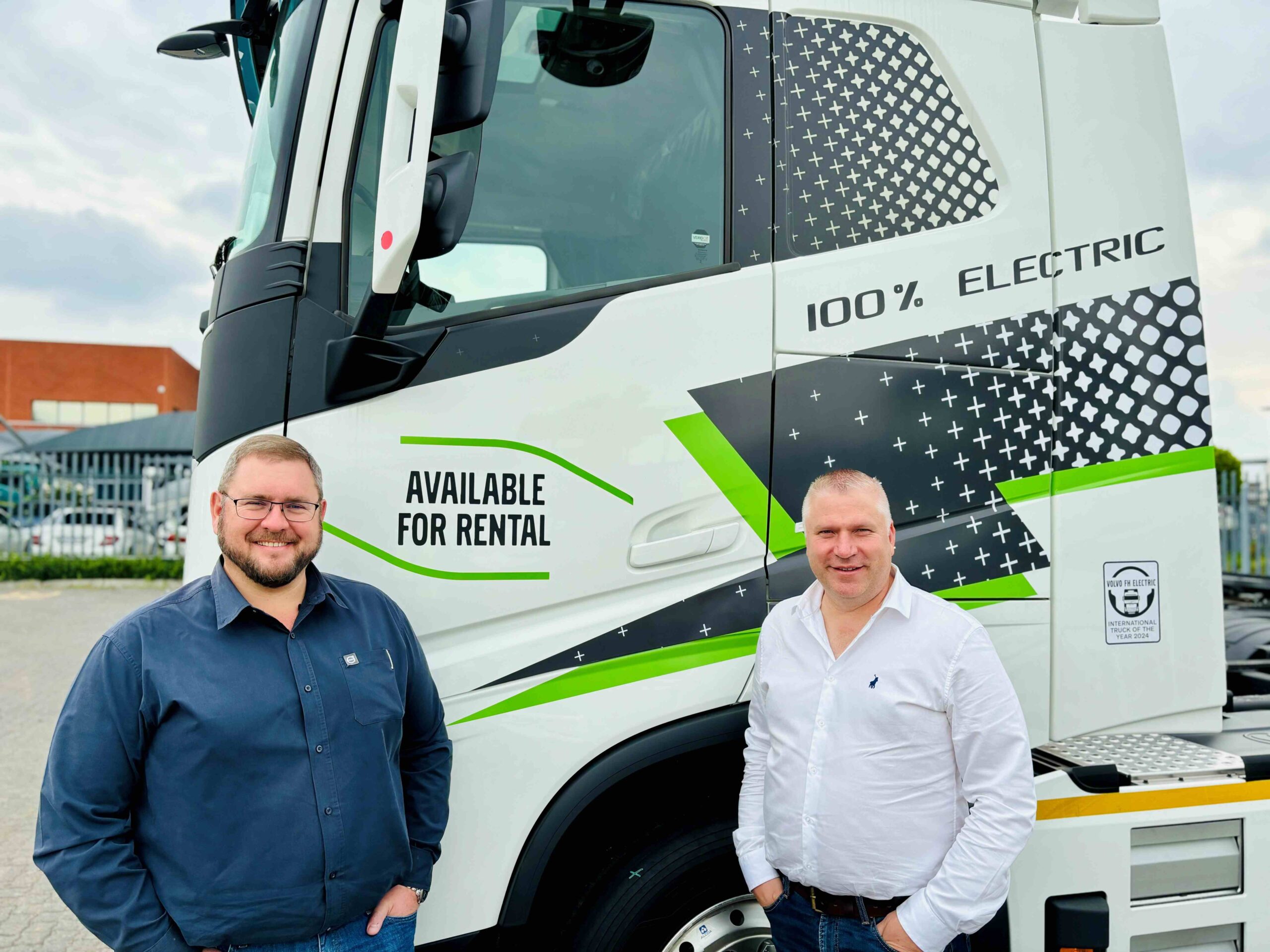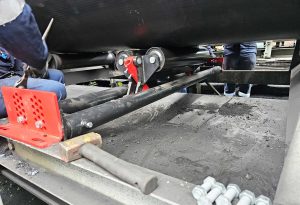Volvo Trucks South Africa has announced the introduction of a new Equipment-as-a-Service (EaaS) model for electric truck rentals in the country.
Since the launch of the Volvo Electric Trucks locally in 2023, the company has brought in a range of configurations to suit the South African market. These new units have been going through homologation and internal testing.
“We recognise that the high initial capital cost of electric vehicles makes them harder for customers to bring into their business, especially those that have shorter-term contracts with their customers,” said Eric Parry, senior manager of Sustainable Solutions at Volvo Trucks South Africa. “The intention is to bring down the ‘barrier to entry’ for those with the environmental ambition to move to cleaner transport solutions. That is why we will also be offering these as rental units to our customers.”
The local Volvo electric truck range currently consists of FH, FM and FMX models, configured as 4X2, 6X2 and 6X4 Tractors. The company will also soon have FM 4X2 and 6X2 rigids available.
According to Paul Uys, MD of Volvo Financial Services Southern Africa, “There is a clear demand for rental trucks in South Africa, as proven by the success of companies with their diesel vehicle offer. We will be the first in South Africa to offer Electric Trucks in an Equipment-as-a-Service rental solution.”
“The biggest advantage of vehicle rental is there is reduced capital outlay compared to when you purchase a truck. The rental option also allows you more flexibility in using the vehicle for a shorter period, without the commitment attached to a long lease obligation,” explains Uys.
Volvo Trucks’ EaaS rentals will be available countrywide. The company also partnered with an established service provider to offer rental customers the necessary charging infrastructure across South Africa, addressing the need for an easily accessible charging network.
“We run detailed simulations for each route that a fleet would like to operate an electric truck in, and this allows us to determine the optimal location and size of the charger. Our trucks can take up to a 250 kW DC Fast charger,” explains Parry. “Then, depending on the client’s needs, we will be able to do a site survey and recommend the optimal charger installation for their location. Our supplier will be able to rent the charger to the client for the period of the vehicle rental.”
The Volvo Financial Services TaaS rental solution is based on a period of six months or longer, and the amount will include the maintenance and insurance cost of the unit. Each truck will be covered by a full Volvo Trucks Gold Maintenance contract for the life of the vehicle.
Volvo Trucks currently has three dealers in the major metros, with trained technicians and the specialised tools to be able to support the full electric range. In general, the trucks will only need to come in once a year for service, irrespective of the mileage they travel.
Special driver training is also available and is aimed at getting the best out of an electrically powered truck. However, the control, couplings and driving style are identical to a diesel model, so there is not much functional training needed.
“A customised and detailed agreement is entered into with each client and is dependent on the vehicle and the type of operations in which the truck will be used,” explains Uys. “The rental units will also incorporate Volvo Connect, allowing customers access to a range of fleet management solutions like vehicle tracking.”
Uys says that at this stage, a ‘rent-to-own’ option is not available but that customers are able to finance electric trucks with ultimate ownership then subsequently passing to them.
Volvo’s Trucks Electric Trucks are aimed at customer fleets with a strong environmental ambition, or a push from their client base.
“These fleets are usually running regional operations. From big blue-chip corporates to smaller fleets, we have received interest from a range of companies,” says Parry. “The rental option enables them to test out the product in their operation for a meaningful amount of time, without the initial capital investment.”







